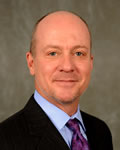|
Mark Carl Rom, Ph.D. – Associate Professor of Government and Public Policy, Georgetown University |
| Friday March 30, 2012 12:30-1:30 p.m. Dampeer Room Kelvin Smith Library Case Western Reserve University Dear Colleagues: There is a time in at least some middle-school students’ lives when the reaction to sex education materials is something like, “that’s yucky.” I’m not sure if that’s because of a stage of development or the materials used; I’m not sure if that is the reaction the curriculum is intended to produce or not; actually as a father I’m not sure whether I want that reaction or not. Back in November the New York Times Magazine had a cover article on “Teaching Good Sex.” My first reaction was to be shocked, because I assumed, as I suspect many readers did, that schools did not teach sex education in the way they teach other subjects: namely, how to understand things and do them well. The course, however, was for seniors at a private school. The whole question of sex education is fraught with embarrassment, political and personal, for all concerned. The topic entered curricula as part of a progressive movement concern for “social hygiene,” and remains in part because of public health concerns that were deepened in the 1980s by the spread of AIDS. It is caught up in a strange brew of the culture wars, public health paternalism, and the effects of federalism, which means jurisdictional disputes among the national, state, and local governments. Since the 1980s much of the political controversy has focused on “abstinence-only” versus “comprehensive” sex education. The former leaves one wondering what is to be taught. Could we teach politics by saying,”don’t get involved?” The latter leaves one wondering whether any program, aside from the one reported in the New York Times Magazine, actually tries to be “comprehensive”. The politics of sex education appear to be rooted in what may be the most fundamental cleavage in American politics: differences in religious traditions or between some religious traditions and more secular worldviews. That is one of the subjects of Mark Rom’s current studies of the politics of sex education. I don’t know what he will say at our discussion this coming Friday. But I do know that he is one of the sharpest thinkers I know, and I am very glad he will be coming from Washington to visit us for this Friday’s discussion. Very best regards, About Our Guest… Mark Rom received his B.A. from the University of Arkansas (magna cum laude) and his M.A. and Ph.D. in political science at the University of Wisconsin, Madison in 1992. He has served as a legislative assistant for the Honorable John Paul Hammerschmidt of the US House of Representatives, as a research fellow at the Brookings Institution, as a senior evaluator at the US General Accounting Office, and as a Robert Wood Johnson Scholar in Health Policy Research at the University of California, Berkeley. Professor Rom studies American politics and public policy, especially social welfare policy. He is currently editing a book “The Politics of Sexuality Education” (with Clyde Wilcox) and writing a monograph “Laboratories of Democracy?” He is also writing a series of papers on grading ethics. He has written Fatal Extraction: The Story Behind the Florida Dentist Accused of Infecting His Patients with HIV and Poisoning Public Health (Jossey-Bass, 1997), Public Spirit in the Thrift Tragedy (University of Pittsburgh, 1996), and Welfare Magnets: A New Case for a National Welfare Standard (Brookings Institution, 1990, with Paul E. Peterson), among other book chapters and articles. His most recent book chapters have appeared in The Politics of Same Sex Marriage (University of Chicago Press, forthcoming) and Promoting the General Welfare (Brookings Institution, forthcoming). His dissertation, The Thrift Tragedy: Are Politicians and Bureaucrats to Blame?, was the co-winner of the 1993 Harold Lasswell Award from the American Political Science Association as the best dissertation in the public policy field. Where We Meet The Friday Public Affairs Lunch convene each Friday when classes are in session in the Dampeer Room of Kelvin Smith Library from 12:30 pm to 1:30 pm. The Dampeer Room is on the second floor of the library. If you get off the elevators, turn right, pass the first bank of tables, and turn right again. Occasionally we need to use a different room; that will always be announced in the weekly e-mails. Parking Possibilities The most convenient parking is the lot underneath Severance Hall. We regret that it is not free. From that lot there is an elevator up to street level (labeled as for the Thwing Center); it is less than 50 yards from that exit to the library entrance. You can get from the Severance garage to the library without going outside. Near the entry gates – just to the right if you were driving out – there is a door into a corridor. Walk down the corridor and there will be another door. Beyond that door you’ll find the entrance to an elevator which goes up to an entrance right inside the doors to Kelvin Smith Library. Friday Lunch Upcoming Topics and Speakers: April 6: Election 2012: Twenty Years After the “Year of the Woman.” Karen Beckwith, Flora Stone Mather Professor of Political Science April 13: Russia’s Presidential Election. Andrew Barnes, Associate Professor of Political Science, Kent State University April 20: TBA April 27: Obama and Alinsky, or: What Happens When a President Thinks Like a Community Organizer. Justin Vaughn, Assistant Professor of Political Science, Cleveland State University |

